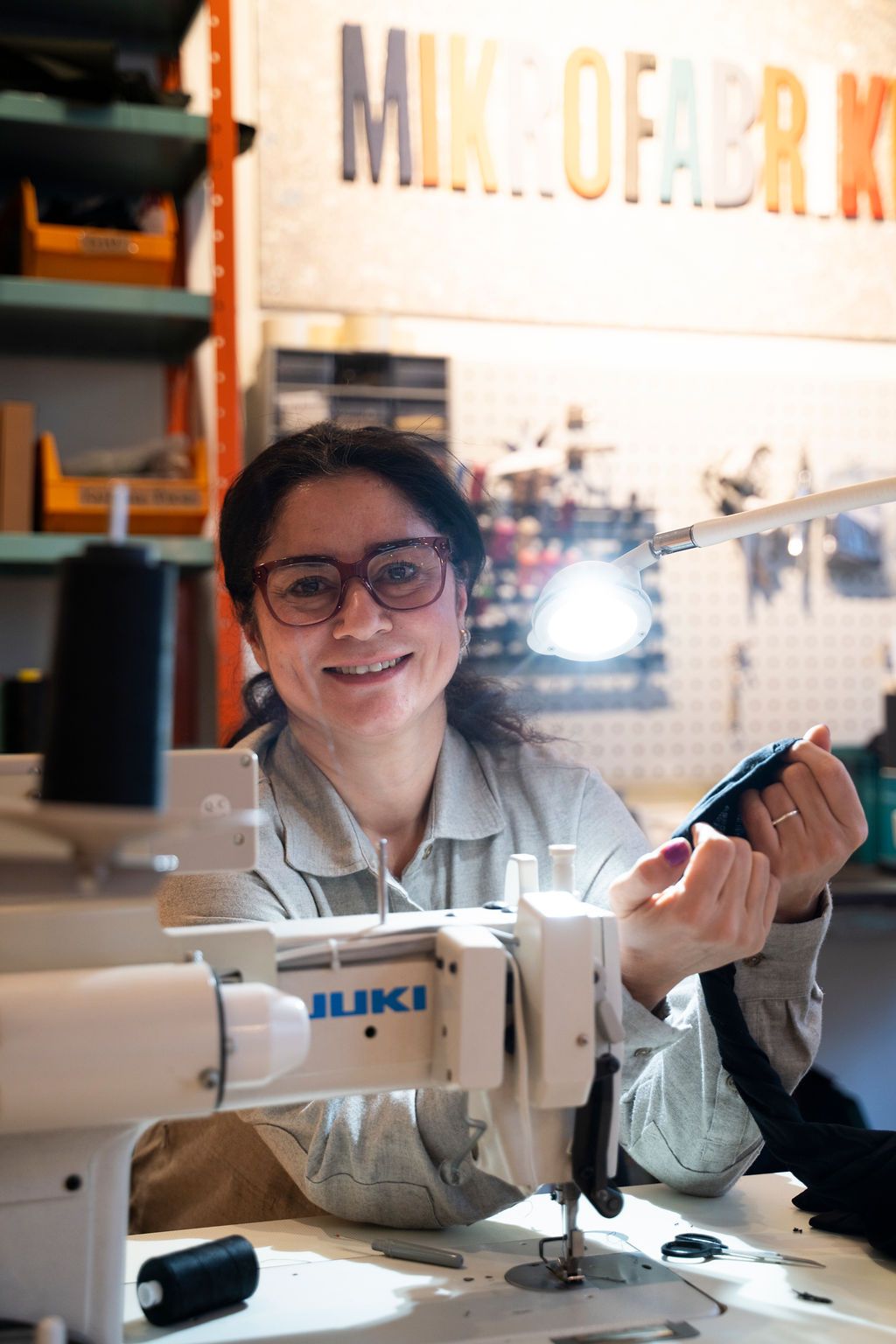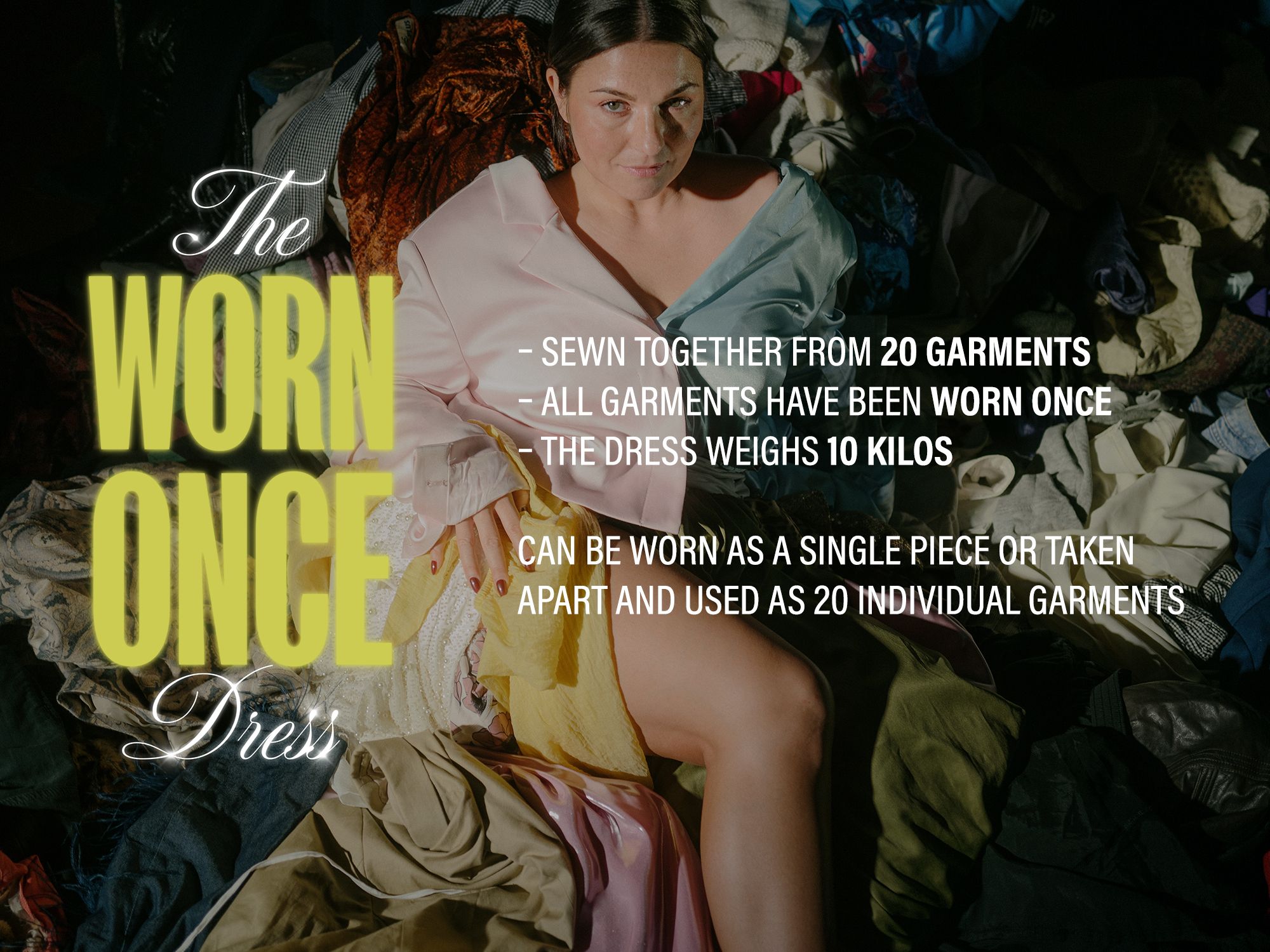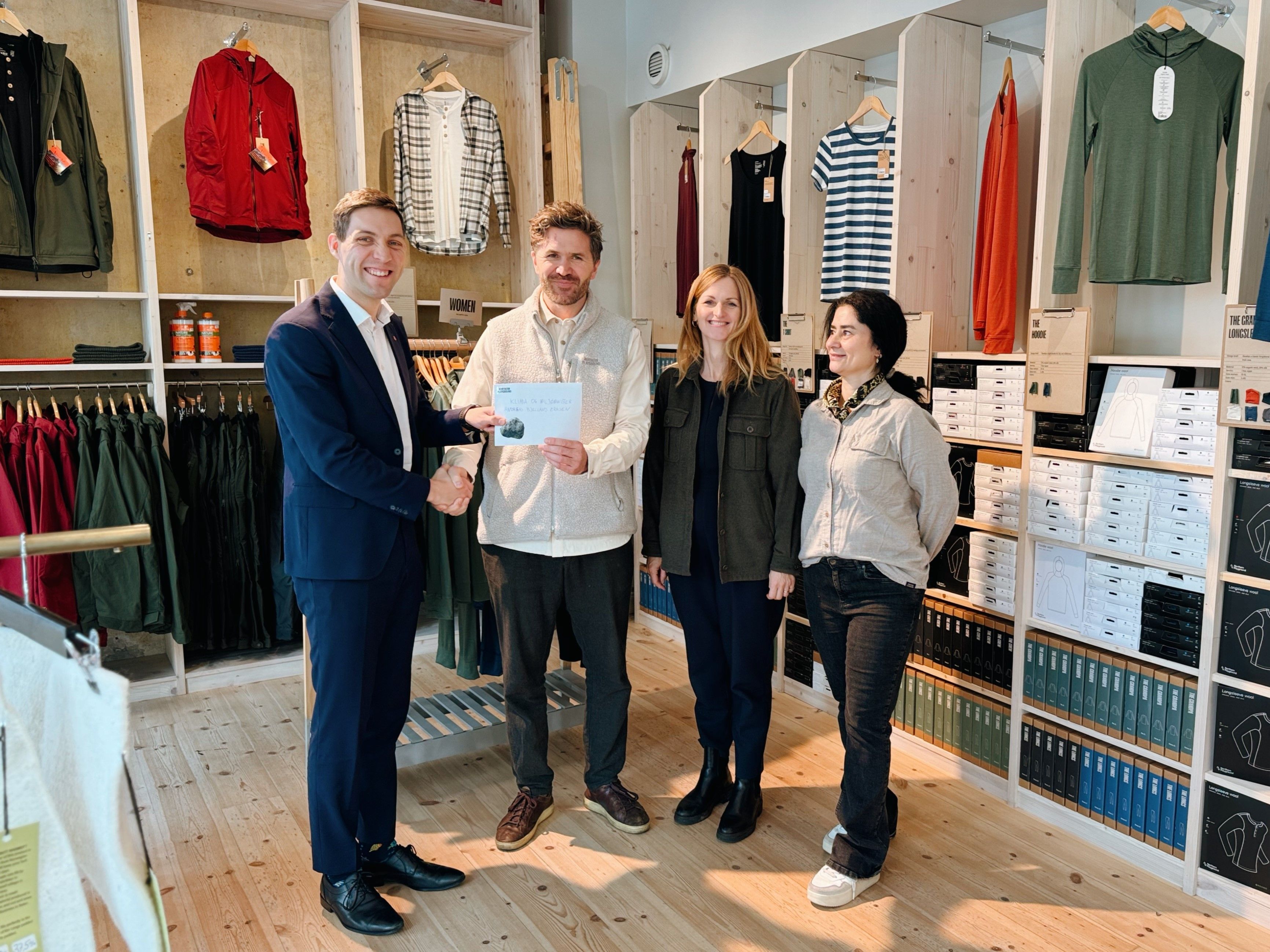ENVIROMENTAL TAX
Most companies probably wished they paid less taxes.
We want to pay more. We know what you're thinking: «Um... what?» Let us explain.

HOW DOES IT WORK?
For over ten years, we at Northern Playground have added an environmental tax to every single product we sell. Not because we have to, but because we believe it’s the right thing to do. Clothing consumption leaves a footprint – and we, as producers, need to take responsibility. Every time you or anyone else places an order, we set aside 15 NOK. Today, that tax helps us repair thousands of garments and create jobs in the circular economy.
In the past, this tax funded The Development Fund’s tree-planting project, where we helped plant tens of thousands of trees. Over the years, things have evolved. To align the tax even closer with our mission, the money now goes toward saving clothes. Below is a list of initiatives the environmental tax has helped fund.

Initiatives made possible by our self-imposed environmental tax:
2014–2020: The Development Fund’s tree-planting project. During this period, we partnered with our customers and The Development Fund to plant tens of thousands of trees.
2020: Launched free repair services for our own garments.
2022: Held our first Last Week – a full week of workshops and events on how to maintain and repair clothes, knives, and bikes, plus free garment repairs (from us and other brands).
2023: Last Week returns + launched our new care and repair program, Use More+.
2024: Opened the Microfactory in our new store in Grünerløkka, Oslo. Our first professional repair technician, Mina Mansoureh (hired from Sisters In Business), joined the team. We also invested in industrial machines to improve repair quality.
2025: Launched The Worn Once Dress – a dress that challenged Norway’s top influencers at the annual Vixen Awards.
+ Ongoing development and streamlining of our in-store care and repair services.

LETTERS TO THE GOVERNMENT AND NEW MINISTERS
As early as 2014, we sent our first letter to the government. The message was simple: Introduce an environmental tax on new clothing – and use the money to make repairs cheaper. The response? Crickets. Since then, we’ve received plenty of public support – and also some condescending comments like “you’re sweet and naïve idealists.” Below is an overview of the letters we’ve sent.

Open letters asking to be taxed:
2014: Recipient: Minister of the Environment, Tine Sundtoft.
2018: Recipients: Minister of Finance, Siv Jensen, and Minister of Climate and Environment, Ola Elvestuen.
2020: Recipients: Minister of Finance, Jan Tore Sanner, and Minister of Climate and Environment, Sveinung Rotevatn.
2021: Recipients: Minister of Finance, Trygve Slagsvold Vedum, Minister of Climate and Environment, Espen Barth Eide, Minister of Trade and Industry, Jan Christian Vestre, and the leadership of Varner Group AS, Active Brands AS, and Norrøna Sport AS.
2023: Recipients: Minister of Climate and Environment, Andreas Bjelland Eriksen, Minister of Finance, Trygve Slagsvold Vedum, and Minister of Trade and Industry, Jan Christian Vestre.
2025: Recipients: Minister of Climate and Environment, Andreas Bjelland Eriksen (personally handed over in our store. See photo)
A LONG-AWAITED BREAKTHROUGH
In May 2025, a government-appointed expert committee proposed a textile tax that would subsidize repairs. This is exactly what we’ve been pushing for over a decade. Are we taking credit? Maybe just a little. After ten years of letters and campaigning, we’ll allow ourselves a small pat on the back – and applaud Framtiden i våre hender and everyone else who helped bring this idea into the spotlight.
Most importantly, it’s exciting to see how ideas that once seemed radical now appear completely logical. Now all that remains is political implementation.
ENVIRONMENTAL TAX GENERATED BY OUR CUSTOMERS
2024: €20,773 — 0.9% of revenue
2023: ��€24,273 — 1.2% of revenue
2022: €22,767 — 1.3% of revenue
2021: €16,010 — 1.0% of revenue
2020: €8,068 — 0.8% of revenue
2019: €2,030 — 0.3% of revenue
2018: €1,304 — 0.3% of revenue
2017: €890 — 0.3% of revenue
2016: €496 — 0.3% of revenue
2015: €384 — 0.3% of revenue
2014: €186 — 0.3% of revenue
EUR, based on an approximate exchange rate of 1 EUR = 11.50 NOK.

